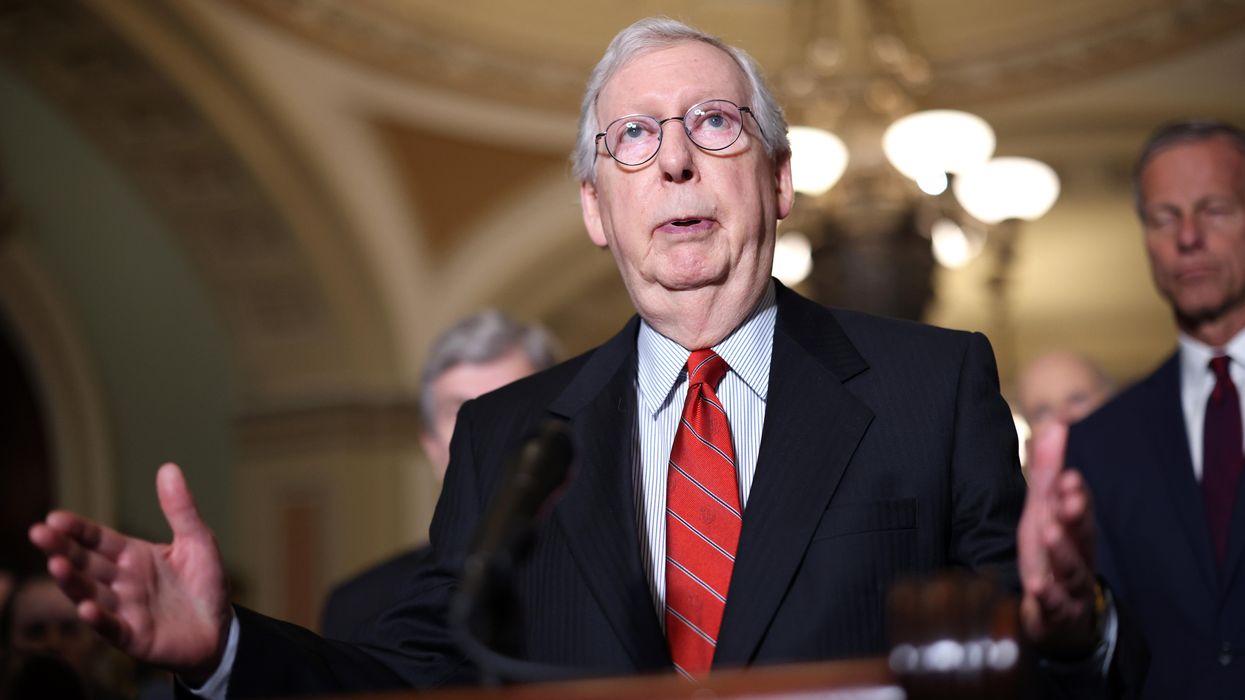Garnering bipartisan support in the Senate for the For the People Act — the prerequisite for Democratic Sen. Joe Manchin's favorable vote — will be a nearly impossible task. And not just because the parties are predisposed to oppose one another's initiatives.
Since its inception, the sweeping election reform legislation commonly known as HR 1 has been clouded in partisanship, and seen by many GOP critics as a Democratic pipe dream. Here are three major conservative arguments against the bill.
HR 1 would federalize elections
While proponents of the bill say it would set minimum standards for voting and election administration, many conservatives are strongly against this so-called "federalization" of elections. They argue the rules for American elections should remain decentralized so state and local officials can follow the best practices for their jurisdictions.
In a March report on HR 1, R Street Institute experts Anthony Marcum and Jonathan Bydlak wrote that decentralized elections also offer a security advantage. "It is challenging to organize an attack that penetrates thousands of jurisdictions, which mostly operate on different systems or procedures," they wrote.
HR 1 would curtail the rights to free speech and association
The campaign finance portion of the bill includes provisions that would impose stronger and broader disclosure requirements on political advocacy nonprofits. Opponents say this would have a "chilling effect" on free speech because it would impinge on the privacy of major donors to political causes.
"The legislation will subject private citizens to intimidation and harassment for their private and political beliefs," a coalition of more than 130 conservatives wrote in a February letter to Congress.
Conservatives aren't the only ones with First Amendment concerns. The left-leaning American Civil Liberties Union also repeatedly criticized certain campaign finance provisions included in HR 1. The organization has sent letters to Congress in 2019 and this year ahead of key votes on the legislation.
In its most recent letter, the ACLU wrote: "We continue to have significant constitutional concerns with the bill, particularly the ways it would restrict nonprofit organizations' advocacy about issues of national importance, such as immigration, racist police violence, voting rights, and reproductive freedom when that advocacy merely mentions candidates for federal office."
HR 1 would weaken election security and integrity
Conservatives have raised the alarm over certain provisions in the legislation that they say would loosen voting rules and create incentives for fraud. For instance, HR 1 would permit voters to "designate any person" to return a completed and sealed absentee ballot to an official drop off location. Critics warn this could lead to so-called "ballot harvesting" in which partisan operatives could go door to door and solicit votes.
Another concern is that expansions like same-day voter registration would be difficult to implement and maintain in rural areas with unreliable internet access. "A person could show up at a poll, sign a registration form and cast a vote without any checks to ensure the person was actually eligible to vote," Henry Olsen, a conservative columnist for The Washington Post, wrote in March.




















Trump & Hegseth gave Mark Kelly a huge 2028 gift